|
I’ve already reviewed the first two episodes of Megan Phelps-Roper’s “The Witch Trials of JK Rowling.” I am now going to review the next two episodes of Phelps-Roper’s podcast and hoooo boy. Phelps-Roper is determined to piss EVERYONE off. And that includes TERFs. Yes folks, Phelps-Roper has put together a podcast where she actually tries to give each side an equal voice. So naturally everyone is going to hate it. The first two episodes of “The Witch Trials of JK Rowling” were mostly very sympathetic towards Rowling. The third episode “A New Pyre” continues that trend but the fourth episode “TERF Wars” actually gives trans people a voice. It’s clear that Phelps-Roper disagrees with Rowling when it comes to allowing trans women to use bathrooms. Phelps-Roper puts Rowling on mute for awhile in the fourth episode “TERF Wars.” Instead of Rowling, Phelps-Roper interviews Nathalie Wynn. Nathalie Wynn is a trans woman, known more commonly as ContraPoints, who talks to Phelps-Roper about the indignity of trans people not being able to use public restrooms. We hear that trans people are going out less and less because of public restroom anxiety. Less outside socialization, of course, leads to higher rates of depression, anxiety and suicidality. As a huge TERF, I had not even considered this. I didn’t know that trans people were simply going out less because of public restroom anxiety. I wouldn’t have known this if I hadn’t listened to “The Witch Trials of JK Rowling.” So, you know, before you start criticizing Phelps-Roper for being transphobic…. keep in mind that she is also opening the eyes of a few TERFs as well. In other words, Phelps-Roper is pissing off EVERYONE. Interestingly though, while Phelps-Roper makes Rowling look like an asshole in the episode “TERF Wars” it was Nathalie Wynn (AKA ContraPoints) who decided to throw a huge fucking tantrum after Wynn was interviewed by Phelps-Roper. And keep in mind that Wynn, like Rowling, has a huge social media platform, a massive Youtube channel and a great deal of pull among Gen Z commenters. Wynn is hardly powerless. Nathalie Wynn’s interview was really interesting in “TERF Wars” so it’s unfortunate that Wynn later decided to whine that she was subjected to “a pretty miserable three-hour interrogation” on the podcast. The word Wynn uses, “interrogation,” is silly. Really? Phelps-Roper interrogated Wynn? Phelps-Roper didn’t let Wynn leave the room? Take a glass of water? Break for the restroom or lunch? Is a polite interview where Wynn’s views are examined (and her responses fairly presented) an interrogation? That’s like calling a barista accidentally misgendering you “genocide.” Let’s be real folks. In episode three “A New Pyre,” JK Rowling addresses the criticisms of how she is a rich and powerful person attacking a vulnerable minority (trans folk) by advocating for women-only spaces. “‘You are wealthy. You can afford security. You haven’t been silenced.’ All true,” Rowling says, “But I think that misses the point. The attempt to intimidate and silence me is meant to serve as a warning to other women. And I say that because I have seen it used that way… I literally had someone say this to me the other day: ‘I was told “Look! Look what happened to JK Rowling. Watch yourself.”’” Rowling makes a strong case here. I still remember the smile of Emma Weyant, the young swimmer who came in second to Lia Thomas at the NCAA. I am positive that the pressure put on Weyant to praise Lia Thomas was SEVERE. Weyant has kept diplomatically silent. She has not praised Thomas because she knows Thomas’ gold medal win was an injustice. And Weyant has not objected to Thomas’ gold medal win because Weyant does not want to lose her job or possible future sports opportunities. Weyant’s silence is her answer to Thomas’ gold medal win. For women less powerful than JK Rowling, silence is the only way for them to object to the more misogynistic aspects of the trans activist movement. I believe JK Rowling was thinking of women like Emma Weyant and the victims of Karen White when Rowling said she refuses to “serve as warning to other women” by being silent. Rowling’s argument, however, starts to become flimsy towards the end of “A New Pyre.” Rowling talks about Milo Yiannopoulos being protested on college campuses. Rowling disapproved of the anti-Yiannopoulos protests. “I thought it was a terrible strategic error,” she says, “You are giving this man way more power than he deserves by behaving in this way.” Rowling says that instead of protesting Yiannopoulos, feminists should have instead “Get on that platform and eviscerate his ideas. Get on that platform and expose him for the charlatan that he is.” Excuse me? Doesn’t Rowling know that the first rule of 21st century debate is “Do not feed the trolls?” Milo Yiannopoulos never once pretended that he actually believed in his own ideas. Yiannopoulos was a troll, full stop. He didn’t care about counterarguments, he just wanted rage and “liberal tears.” The idea that Rowling is putting Yiannopoulos on the same level of conservative commentators who at least pretend that their arguments are based on logic, like Ben Shapiro and Jonah Goldberg, is bonkers. Rowling is smarter than that. I won’t say exactly that Rowling was gaslighting about Yiannopoulos in “A New Pyre,” but I will admit that I caught a few whiffs of paraffin. Phelps-Roper ends “A New Pyre” and starts “TERF Wars” with a very frightening voice clip from apparently a trans activist protester: “FUCK YOU! FUCK YOU YOU UGLY PIECE OF SHIT! YOU LOOK LIKE YOU GOT YOUR TEETH KNOCKED OUT YOU FUCKING FASCIST! NOBODY KNOWS WHO YOU ARE AND NOBODY CARES! YOU WILL DIE ALONE! YOU WILL DIE ALONE AND YOU WILL BURN IN HELL!” The voice is masculine and it is enraged. The out-of-control shrieking of that masculine voice will raise the hairs of any domestic violence survivor. When you are a domestic violence survivor, you automatically brace for the punch when you hear that masculine rage. I found it upsetting that Phelps-Roper kept using that clip of the enraged male voice protesting feminists, but I understood why Phelps-Roper believed that clip was important. Phelps-Roper wants to draw a parallel between the more misogynistic protests against TERFs and domestic violence. The next episode “TERF Wars” deals with domestic violence. Phelps-Roper gives a trigger warning but I still found myself growing so upset listening to it that I had to stop the episode. I waited until I was hiking and receiving a nice boost of endorphins flowing through my brain before I restarted “TERF Wars.” Good thing too because the beginning of “TERF Wars” is brutal. The descriptions of how back in the 20th century nobody seemed to give a damn about women who were beaten by their husbands were horrendous. The first shelter for women escaping domestic violence did not appear in the UK until 1971. Safe spaces save lives, and women have fought hard for them. Phelps-Roper also manages to score an interview with Dr. Erica Anderson, a trans woman and psychologist who has worked with trans youth. Anderson is hardly a biased source when it comes to TERF talking points so it’s interesting that Anderson appears to agree with a lot of findings that most trans activists have called “transphobic.” “I’ve been concerned for some time that there are providers who are not following the standards of care which historically have invoked the need for an individualized congruence of bio-psycho-social evaluation prior to the initiation of medicines,” Dr. Anderson tells Phelps-Roper, “(T)here are some young people who are going to providers and obtaining puberty blockers and hormones but not having a full mental health evaluation. I think that’s sloppy and bad practice.” Dr. Anderson implies that there is too much fast-tracking of young kids into gender transition. If gender dysphoria is a symptom of, say, past sexual trauma and not a true trans identity then children are being given the wrong medical treatment and in some cases permanently altering their bodies.
And when people suffering from past trauma receive the wrong mental health intervention, that increases the possibility of future psychosis and suicidality. It’s not just trans activists who are responsible for the mental health crisis in trans teens because teens have been irresponsibly fast-tracked through gender transition without a full evaluation. Phelps-Roper does also point the finger at TERFs. Phelps-Roper does not soft-pedal the threats trans people face from rightwingers. “Online, just as there are some trans advocates who send violent and harassing threats towards the people they call ‘TERFs,’ there are also many others- often coming from the right and the altright- who send violent and harassing threats towards trans activists and their allies,” Phelps-Ropers says, “Some based on accusations that any attempt to teach kids about trans identities is actually a smokescreen for a desire to sexually exploit young children. In this climate many activists feel that feminists calling for open dialogue and good-faith debate are really just opening them up to greater harm.” Oooofff. Yes, that’s right folks. Phelps-Roper isn’t letting the TERFs off either. She’s making both sides here are getting a good dose of medicine. “The Witch Trials of JK Rowling” is very, very well-balanced with no easy answers. Which is why it’s gonna piss off EVERYBODY.
0 Comments
If you’ve been around Transphobe Youtube lately you’d see that people have been all aflutter about a clip from the I Am Jazz show. I Am Jazz is a TLC reality show about a young trans woman named Jazz Jennings. Jennings, who is AMAB, transitioned when she was only five years old. Jennings is very much an average young woman, albeit one who got into Harvard. I remember when I first saw previews for her show when she was in her early teens. I didn’t know exactly why TLC was devoting a show to her. She didn’t seem very interesting. Was she related to the Kardashians or something? It was only when I looked her up online that I saw she was trans. Jennings is seen as the Platonic ideal of the trans woman. She was put on puberty blockers early so she is not only passable as a woman it’s kind of impossible to see her as any gender other than female. Anyway Jennings is inspirational because not only is she trans and beautiful, she’s also very psychologically healthy, wholesome and smart (again, Harvard student).
Jennings defies every ugly stereotype of trans teens being suicidal, lazy and suffering from social media poisoning. That’s why transphobes were gleeful when a clip surfaced from the latest episode of I Am Jazz. It showed Jazz crying to her mother about how “I just want to feel like myself. All I want is to be happy and feel like me, and I don’t feel like me, ever.” It’s kind of a cringey scene. Jazz and her mom are talking and the acting is soap-opera level bad. Jazz is crying but no tears are coming out of her eyes. Her mother is using daytime TV platitudes like “You’re your own worst enemy.” It all feels very scripted. Here the thing, as anyone who has ever worked on reality TV can tell you, a lot of what is presented as “real” on reality shows is usually written before being filmed. Yes, I believe Jazz Jennings is real and her family is real but a lot of what is presented of Jazz’s life on TLC is dramatized. Scenes are hashed out beforehand by producers. I do think producers on I Am Jazz were trying to draw in younger viewers by having Jennings talk about her mental health problems in very vague ways. “The kids today are all anxious and upset and too addicted to screens. We need Jennings to connect to them in a scene where she says she’s unhappy in a vague way and it’s because of mental health etc.” The artificiality of Jennings’ “breakdown” is sort of emphasized by TLC cutting from Jennings’ tear-free crying to a clearly-composed Jennings in full make-up talking calmly to the camera. “I feel kind of all over the place and like my mind is very cluttered,” Jennings says as if she’s giving the weather report, “I really want to have that clarity. I really want to understand myself and be able to read my own soul and what I want and it’s just very challenging and I think I’m kind of breaking down a little bit and spiraling into negativity.” Sounds incredibly generic. ChatGPT couldn’t deliver a more vague description of “this what the young people are feeling these days, right?” Of course the transphobes are pretending Jennings’ reality show is the gospel truth and Jennings’ badly-written depression is a totally real example of pre-suicidal ideation. Matt Walsh delivered a characteristically misogynistic tirade against Jennings’ mother. Walsh consistently migendered Jennins and said, without proof, that Jennings longs to be the boy she was not allowed to be. Jennings has been mutilated and betrayed by her family etc. etc. BTW, I will admit that Jennings’ mother has said some REALLY problematic things in the past, including at one point apparently threatening to rape her daughter with her daughter’s dilater. So I’m not letting Jennings’ mom off the hook here. But I’m not gonna let Walsh and his fellow transphobes go wild on the Jennings family either. Before I go further, I should say that I am a huge TERF. Or rather, more like a STEF, a “Some Trans-Exclusionary Feminist.” I do believe in the basic rights and dignity of trans folk. I believe trans people exist. I also believe that there is too much misogyny in the trans rights movement, that women should not be bullied to make space for people with penises who clearly do not belong in women’s spaces, and that women should not be erased from healthcare. I also believe that Gender ID laws need to be tightened up. Men cannot just declare themselves women and expect to be allowed into women’s spaces at the drop of a hat. I think JK Rowling is a rockstar, biological sex is real, and misogyny does not disappear just because the misogynist changed pronouns. But I also think it’s disgusting when people like Matt Walsh deliberately misgender Jazz Jennings, deadname trans people and elevate badly-behaving trans folks just to smear the trans community in general. So yeah, just call me STEF. Anyway, Jazz Jennings has spoken publicly about her mental health. It’s clear she has a binge eating disorder and is sometimes overwhelmed…. which is average for most young women her age. Still, it’s dumb to portray a clearly-scripted “crying” scene on a reality TV show as “proof” that trans people are all just victims of a medical-industrial complex intent on turning gay men into straight women etc. etc. I know it’s hard to tell transphobes to chill on anything but I’m gonna put it out there anyway. Transphobes need to chill on that Jazz Jennings clip. It’s not real, it’s reality TV. In other words, it’s fake. TW: Talk of mental health problems and suicide. Please protect your peace if you don’t feel you can handle that at this time. Henry Berg-Brousseau died in 2022. The cause was ruled a suicide. Henry’s mother Karen Berg released a statement about her son’s death. In Berg’s statement she described how Henry “long struggled with mental illness, not because he was trans but born from his difficulty finding acceptance.” Henry Berg-Brousseau clearly had family that affirmed and accepted his identity. Berg-Brousseau worked at the pro-trans organization “Human Rights Campaign” as the deputy press secretary. His work and personal environment appeared to be safe for him. Henry is not the only trans person to choose to end his life despite receiving widespread affirmation by his loved ones. Kayleigh Scott also died by suicide recently. Scott was a trans woman and flight attendant. She was beautiful, accepted, and had a wide, supportive audience through her TikTok channel. “She was this bright light that just loved and embraced everyone,” Scott’s mother Andrea Sylvestro said in a public statement, “She loved and showed compassion for everyone that reached out to her. She was so very special.” And yet, despite being surrounded by extremely affirming environments, both Berg-Brousseau and Scott ended their lives. Berg-Brousseau died by suicide (according to his mother) as a direct result of “the hateful and vile anti-trans messaging being circulated around this country.” Karen Berg’s words made me ponder the statistics for trans people who attempt suicide. I wondered how those numbers compared to other marginalized groups in American society. Overall 0.3% of the American population has made a suicide attempt in the past year, according to the CDC. That’s pretty grim, but the good news is that that figure (from 2021) is down a great deal from suicide figures in 2015, which showed 0.6% of Americans having attempted suicide in the past year. Unsurprisingly, suicide attempts among populations that experience systemic discrimination are higher than the overall suicide attempt rates in the US population. 2.1% of black Americans have attempted suicide at least once in their lifetime. 2% of cisgender gay men and 3% of cisgender gay women had attempted suicide at least once in their lifetimes. Indigenous Americans have the highest rate of suicide attempts of any ethnic group in the US. The most recent statistics show that 20% of indigenous adolescent girls and 10% of indigenous adolescent boys have attempted suicide at least once. Suicidal ideation among Indigenous people is a huge problem. Indigenous communities already suffer from high rates of violence, alcohol abuse, domestic abuse and overall despair due to historical disenfranchisement of their culture. Self-governing Indigenous tribal communities in the US have some of the highest poverty rates in the nation. Even the high rates of suicide attempts among Indigenous Americans are eclipsed by number of trans Americans who attempt suicide. 56% of trans youth have attempted suicide in the past year and 86% of trans youth report suicidal thoughts. These stats have been confirmed in several peer-reviewed studies and surveys by the Trevor Project. As I have spoken about before even trans youth who receive gender-affirming hormone treatments still maintain an unacceptably high rate of suicidal thoughts at 56%. Trans advocates are firm when it comes to who to blame for the massively high rates of suicidality among trans people: It’s society’s fault!!! JK Rowling is to blame! Ricky Gervais is to blame! Dave Chappelle is to blame! Every single TERF who ever criticized Lia Thomas is to blame! Every single cis lesbian who ever turned down a trans woman for sex is to blame! Even conservative estimates of suicide attempts in the trans population are well over four times the percentage of suicide attempts found in American Indigenous populations. By this logic then, the “Gender Critical” crowd is far more dangerous than the centuries of genocide, smallpox, land theft, cultural erasure and abuse that Indigenous American people suffered. Which just seems a little unlikely. Seriously? The only population that is even close to trans Americans when it comes to the percentage that has attempted suicide at least once during their lives is Americans who have schizoaffective disorder. 50% of Americans with schizoaffective disorder, according to one study, have attempted suicide at least once during their lifetimes. And here we start to tread on dangerous ground. Why does the trans experience seem to share the same architecture as severe mental health disorders? Why do suicide attempt rates for trans people far outstrip suicide attempt rates for other marginalized communities while matching the suicidality rates for people suffering from severe mental health disorders? And why do over 50% of trans youth continue to attempt suicide even AFTER they receive gender-affirming care? 0.3% of Americans overall attempt suicide every year. 56% of trans people attempt suicide every year, even after they receive gender-affirming care. It’s time to face some uncomfortable facts. People who identify as a gender that is not part of their natal sex carry a high risk of suicidal thoughts. These thoughts are not the fault of society or TERFs or the Harry Potter lady or Dave Chappelle. These suicidal thoughts are part of the diagnosis of gender dysphoria, and the thoughts do not appear to be alleviated no matter how much validation trans people receive. More concerningly, severe mental health symptoms like “euphoria” are celebrated in the trans community. “This gives me gender euphoria” is a common statement of positivity in response to a trans person receiving some form of gender affirmation. Euphoria, however, is not necessarily a good thing. According to the American Psychological Association, An exaggerated degree of euphoria that does not reflect the reality of one’s situation is common in manic episodes and hypomanic episodes. What’s wrong with feeling euphoric? Well, as the saying goes, the higher you fly the harder you fall. Many trans people talking about their euphoric experiences during their gender transition have described sudden episodes of depression coming seemingly out of nowhere. These feelings of severe depression often occur after feeling gender euphoria. People who experience these depressive “crashes” in mental health conditions like bipolar 1 can be so badly affected that they will want to end their lives. This is the reason why psychiatrists are often concerned when they encounter a patient who is in a very euphoric state.
Doctors who study trans and gender dysphoric people need to be able to do their jobs without fear of being “cancelled” if their research goes against a socially-acceptable trans narrative. Henry Berg-Brousseau did not have to die. Kayleigh Scott did not have to die. They both had love and validation and acceptance but they ended their lives anyway. If we can save more trans people from deaths by suicide, we have to start asking some hard questions. Just blanket-blaming society for bad mental health rates among trans people when the statistics show deeper causes is dishonest. And, worst of all, it’s not saving trans people. We all love dumb jokes. Don’t try to deny it! We pretend to hate the jokes. We groan theatrically when we hear the punchline. We pretend to slap the person who made us sit through the dumb joke. The joke-teller laughs loudly at our indignation, knowing that the real joke was tricking us into being momentarily interested in a joke before realizing that it was gonna end in such an obnoxiously cheesy manner. But seriously, we all love the dumb jokes. The dumb jokes bring us together. The dumb jokes are the jokes that everyone in the group can understand. People can smile at a witticism by Oscar Wilde, but they will never laugh as uproariously as when Moe smacks Curly in the head with a two-by-four. I have sat at many a table where I was the only person who could not speak French or Korean,… or at least could not speak those languages well. What broke the ice? A dumb joke. I needed jokes many times in my life that were dumb enough and simple enough that I could tell them with my poor French language skills. I also needed the jokes to be funny enough that even the people struggling to understand me could laugh. The dumb jokes did the job. Even now hearing third graders snicker about reading “Diarrhea of a Wimpy Kid” is oddly comforting. Even the toddler who is only three months out of diapers will think it’s hilarious to point at his younger still-diapered sibling and laugh “Poop! Poop!” And if you think our ancestors were above it all, you will be in for a surprise. The dick jokes people have found in old Anglo-Saxon literature are legendary. (LOL, you think the joke is about a penis but it’s actually about an onion! Lol!) The ancient Europeans had a lot of jokes like that. It’s a key. You know, for a lock?
LOL. You laughed though, didn’t you? You laughed here, and now, in 2023. You laughed at a joke that someone wrote in the 10th century. Just remember that! If you ever accidentally time-travel back to England in the late 960s AD, you can still chat with the locals if you know a few dumb jokes. Preferably jokes about dicks. It’s a weirdly comforting thought. Dylan Mulvaney just got a sponsorship from Nike and people are upset. And frankly, they are justifiably upset. There are a lot of reasons to dislike Dylan Mulvaney. Cis women dislike Mulvaney because Mulvaney shows “girlhood” (Mulvaney is 25 and not a child) as a sort of Broadway act. Trans women also appear to intensely dislike Dylan Mulvaney. Most trans women see Mulvaney (understandably) as undermining the trans movement by portraying trans womanhood as essentially a musical number. It’s a show. It’s a skit. It’s a bit. It’s not REAL folks! It’s just totally fun. It’s a stereotype that many trans women hate. Trans women also hate how Dylan Mulvaney seems to be offending and alienating potential allies among cis women. “Thanks to Dylan we don’t f*cking need JK Rowling anymore!” one trans Reddit user fumed. The push-back against Dylan Mulvaney among the trans community is still small and confined to Reddit spaces, but I’ve noticed that it’s growing. People became more offended, however, when Dylan Mulvaney started to receive brand deals from Budweiser, Tampax and Nike. A video of Dylan Mulvaney skipping through a Kate Spade store received backlash simply in how it ignored that trans people (who are disproportionately low income) and women (who were slammed by the “she-cession” caused by the pandemic and still are trapped in low income situations due to a lack of low-cost childcare) can’t afford Kate Spade-level luxury clothes. The latest endorsement by Nike where Dylan Mulvaney modeled a woman’s sports bra received backlash from not only the usual rightwingers but other viewpoints who asked why the hell a person with no breasts was given a brand deal for a woman’s sports bra by Nike? Mulvaney is clearly not on HRT. Mulvaney has had facial feminization surgery and is very thin. That being said, it’s clear that Mulvaney has no real wish to have breasts or to embrace the body changes that occur with high estrogen levels. Which is fine. However plenty of trans women DO have breasts and they could really benefit from a sports bra suited for their needs. Trans women’s breasts are different from cis women’s breasts. Trans women’s breasts tend to be further apart due to broader shoulders. Trans women still have a triangular upper body shape which makes bras sit uncomfortably even if the bra manages to support the breasts. This is a real problem for trans women who want to exercise and be comfortable. Even with Dylan Mulvaney’s thin frame you can see the bra Mulvaney is wearing doesn’t fit very well. It is not meant for a triangular upper body frame. The straps are uneven, and the garment pinches uncomfortably under Mulvaney’s armpits. It would have been nice if Nike had engineered a sports bra specifically for a trans woman with breasts. A sports bra that would support more widely-spaced breasts while accommodating for wider shoulders and a triangular upper body shape would be useful.
Oh, and next time Nike should use an actual trans woman with breasts to model the sports bra. Yes, those models exist. I’m gonna be real. If you’re Jewish in America (like me) and you grew up Jewish in America (like me), you probably hate Passover. Passover is an utter grind of a holiday, especially if you’re a kid. All your friends are out doing Easter egg hunts and eating chocolate rabbits and running around in pastel dresses with pretty baskets full of toys,… and you’re trapped for four damn hours sitting at a table while your grandfather drones on about the plagues of Egypt. It’s hard. There’s a seder plate with a lamb shank and one hardboiled egg and some parsley and some chopped walnuts with apples and a whole big root of horseradish! Yum! Of course Passover is supposed to be a crummy holiday because it’s a holiday with one important message: Remember that you used to be hungry. If there is one thread that runs through the entire Jewish experience across the globe, it is anxiety. We know that we came from poverty and we know we are one bad government election away from returning to poverty. We Jews know that we should NEVER get comfortable. Never assume a damn thing. That Jewish phrase “This too shall pass” is not meant as reassurance. Yeah, it’s a comfort for the bad times but it’s also used during the good times. It means “Good times pass too. Be prepared.” Passover is one long four hour slog about “Be prepared. Remember that you came from poverty and hunger. Remember that you can return to that state really easily.” When my mother learned about the Great Depression in school during the 60s, she went home and asked her father what it was like to grow up during the Depression. My grandfather was the youngest of six kids and his family lived in the Jewish tenements in the Bronx during the 30s. “Did you go to bed hungry?” she asked her dad. My grandfather mused on this question a bit. “No…. no I didn’t go to bed hungry. I wouldn’t say hungry. But I did go to bed unsatisfied,” he responded, “I’d say unsatisfied. Not hungry.” When my mother told me this story I found it interesting. Only people who really have lived with hunger know that there are different levels to poverty and hunger. To people who are not poor, poor is just poor. Hungry is just hungry. To people who HAVE known real poverty and hunger, they know that there are levels. As Viola Davis once said, “We were ‘po.’” Davis describes “po” as “a lower level of poor.” As Davis wrote in her memoir “Finding Me,” We had to go to the laundromat to wash clothes. But having no money, six kids, and freezing cold weather meant that most of the time laundry would go unwashed for weeks. That, compounded with the bed-wetting, made for a home with a horrific smell. Closets and space underneath the beds would be stuffed with shoes, dust, miscellaneous items. We were afraid of even cleaning for fear rats would be lurking underneath all the “rubbish.” On the first day of the month food stamps would come and we would make a huge grocery run at BIG G market. In less than two weeks, the food would be gone. My grandfather was not “hungry” in the way he defined “hungry” as a poor kid. He was poor but not “po.” He knew people on the lower levels of “hungry” and he was grateful for being on the upper levels of “hungry.” He may have just had bread and tea for supper, but at least he had something to eat. Some people had nothing. I recently checked out Roman Vishniac’s photography book “Vanished World” from the library. In Vishniac’s photos of Jewish people living in poverty in Poland, I could see why my grandfather was grateful for being merely “unsatisfied” in his dinner as a child. One picture that stood out for me was of a young shopkeeper who had been locked out of his store. Anti-Semitic boycotts in Poland in the late 30s had caused Jewish businesses to fail. This shopkeeper could no longer afford the rent on his store so the landlord locked him out. The man could do nothing but stand outside, weeping. What I find striking about the photograph is just how thin the man is. You can see his hip bone stick out through three layers of heavy wool. His pants are belted but still far too baggy on him. He’s clearly lost a lot of weight recently, and it probably wasn’t deliberately. This man is hungry. And on the lower levels of hungry. And that’s pic’s not old either. It’s less than 100 years old. People alive during that era are still alive. Oh, and people are still hungry. Here, now, in 2023, there are people who are still hungry. Not “unsatisfied,” but hungry. That’s what Passover is about. It’s about reminding you that hunger is still there. And it will grab you if you’re not on your guard.
It’s a dreary thing to be reminded of which is why we all hate Passover. The message of Passover is essential, however. This too shall pass, so be on your guard. TW: Talk of genocide and mental health. We need to talk about the trans activist community’s use of the word “genocide.” It’s always bothered me. Classifying various laws concerning gender-affirming care for trans minors as “genocide” or condemning discussion about trans women athletes as “genocide apologism” seems like intellectual dishonesty. More disturbingly, using such highly triggering language seems to be an attempt to shut down even mild critics of trans activism. 13 states have banned at least some forms of gender-affirming care for minors. These bills have been cloaked in misleading headlines by the media, like “Florida’s Decision to Refuse Life-Saving Care for Trans Youth.” It looks like Florida is planning to just let trans kids die of asthma attacks or making sure trans kids don’t get CPR or appendectomies. Which would indeed be an act of passive genocide. But that’s not what’s happening. The bills being introduced in red state legislature are restricted to ONLY gender transition care for kids under 18. This has been response to a lot of disturbing reports stating that minors receiving gender affirming care are NOT showing decreased levels of suicidality. Reports that say otherwise (like the misleading Dr. Tordoff report), have been quietly debunked. I have discussed this before in several articles. And asking for doctors to pump the breaks on gender affirming care in minors and people with depression (like the AG of Missouri stating that 18 months of therapy ruling out alternative causes of gender dysphoria must be followed before a minor receives gender affirmation treatment) may be unjust or unconstitutional, but calling it “genocide” is dishonest. It appropriates from the actual victims of genocide throughout history, whether it be the Uyghurs in China, the Rohingya Muslims in Myanmar or the Armenians by Turkish military. As a feminist I am furious by the reversal of Roe v. Wade but I would not call this imposition against the medical rights of women a “genocide” against women. So what is genocide exactly? According to the Oxford dictionary, genocide is “the deliberate killing of a large number of people from a particular nation or ethnic group with the aim of destroying that nation or group.” That’s not happening with trans people in the country, thank goodness. However I do consider the dictionary definition of genocide to be too narrow. The Uyghur genocide, American slavery and the kidnapping of indigenous children in America would not fit the dictionary definition of genocide. So what is a good definition of genocide? The UN Convention on the Prevention and Punishment of the Crime of Genocide currently defines genocide as only happening to “a national, ethnical, racial or religious group.” That in and of itself means that nothing happening to trans people meets the definition of “genocide” since trans people as a group meet none of those definitions. I personally disagree with restricting genocide to only happening national, religious and racial groups. Genocide can also happen to disabled people and LGBTQ people. The fact remains that none of the definitions of genocide as defined by the UN is occurring to trans people. Trans people are not being killed by the state. Trans people are not being mutilated. Trans people are not being herded into concentration camps or reeducation camps (which is what part “c” of the UN definition of genocide is referring to). Trans people are not being sterilized. In fact, if you go to the more feverish parts of transphobic Twitter, a lot of transphobes are accusing trans rights activists of sterilizing autistic children or depressed teenagers by streamlining these children into gender transition treatments that can often render trans people infertile. “This is a genocide of autistic children and masc-presenting gay girls and femme-presenting gay boys!” There are sloppy accusations of genocide on both sides. When trans activists are pressed about where exactly the “genocide” is against trans people in the US, trans activists usually point to the second definition of genocide, specifically the “mental harm” part of “Causing seriously bodily or mental harm to members of the group.” To me, however, the “mental harm” definition of “genocide” is being stretched far too broadly. If you redefine criticism as causing “mental harm,” (and frankly all criticism causes the object of the criticism to feel bad in some capacity) … you could then simply smear the critics as causing “genocide.” I’ve seen this ploy used against JK Rowling and Riley Gaines (mostly women, interestingly) and it’s dishonest. A few trans activists have said part “e” of “genocide” (“Forcibly transferring children of the group to another group”) applies to Florida’s bill. The bill mostly applies to noncustodial parents being able to sue for custody of kids if the custodial parent allows the kid to go through gender affirming medical care. There are a lot of arguments you can make against the Florida bill, but it’s not “genocide.” The UN Convention defintion of genocide discussing the “forcibly transferring” of children refers to the US, Canada and Australia separating indigenous children from their families. Many of these children were kidnapped and sent to boarding schools, where hundreds of these children died. Again, comparing to what happened to indigenous children (which was indeed genocide) to custody tussles over children receiving gender affirming care is dumb. Stating that legislation putting some screening requirements on gender affirming care is “genocide” is sloppy at best and causing unnecessary mental harm at worst. In fact, reddit forums like r/transguns seem to encourage stockpiling guns among trans folks and allow commenters to talk about taking as many cis people with them as possible in the upcoming “genocide.” If you think this won’t lead to a volatile situation, you’re a fool. Already there is a huge dispute about releasing the Nashville shooter’s manifesto to the public. I have no idea what is in that manifesto, but I fear that a lot of the language in the manifesto echoes so much of what I am already reading on Reddit forums for trans people. “Buy as many guns as possible and take as many of the bastards as you can with you when they come for you.”
People in this mind frame could end up doing something horrible, either to themselves or to others. So I am begging you, please, stop saying the word “genocide.” That is not just a word to toss around for lazy emotional shock value. Out of respect for the many victims of genocide throughout history, learn what genocide *actually* is. And stop saying “genocide” unless it’s truly genocide. TW: Discussion of SA, misgendering, slurs, hate speech and violence against trans people. I just published an article on Medium saying that trans activists are dangerously stretching the definition of “genocide.” Trans activists, however, are not alone here. Transphobes are also using overly-emotional language for manipulative purposes when it comes to discussing trans people. Specifically there is a new term that is starting to trend on transphobe Twitter. It’s called “rape-by-deception.” What is “rape-by-deception” you may ask? Well apparently if a trans woman sleeps with cis man without telling the man that she’s trans, she’s just “raped” him. And he’s allowed to beat the hell out of her if he finds out she’s trans. That sounds disturbing, but this is the logic that is going around transphobe twitter: Violence against trans people is forgivable if the trans person was not immediately upfront about being trans before sex. Because a cis person willingly having sex with a trans person without knowing the full story about the trans person’s gender at birth is a cis person who is being raped. No seriously, that’s the argument. TW: Disturbing So how the heck are the transphobes defining consensual sex with a trans person as “rape?” Well, they’re using the legal precedent where Abigail Finney, a young woman in college, thought her boyfriend had climbed into bed with her one night. She had sex with the person she thought was her boyfriend, only to find out after turning on the light that the male person was a gaming buddy of her boyfriend’s who had drunkenly crawled into bed with her.
The prosecutor brought charges against the gaming buddy, alleging the man violated Finney through “rape by deception.” The gaming buddy was acquitted but the case is apparently being seized upon by transphobes. If a cis man has sex with a trans woman whom the cis man thinks is a cis woman, that’s “rape by deception.” It’s ridiculous. At this point, how far can we stretch the definition of “rape by deception.” If a guy you hook up with says he owns the fancy house he lives in but it turns out he’s just housesitting and he actually lives with his parents, is that rape? What if the woman you sleep with says she’s 25 but she’s actually 35, is that rape? What if the guy you have a one-night stand with swore over dinner that he’s a Democrat but you later find that his Facebook page is full of MAGA memes? Does that mean he raped you? What if the girl you had sex with talks about how she’s naturally curvy but then it turns out that she had breast implants and a tummy tuck and butt-enhancing spanx on? Does that mean she raped you? Do you see how dumb this is? Here’s the deal. Transphobes need to stop using words like “rape” when it comes to miscommunication about dating between trans and cis people. It’s leading to people being hurt. And it sure as hell not helping ACTUAL victims of rape. Look, it’s time we accepted that Spongebob Squarepants is a cultural icon. Even if you’ve never had kids, even if you never watched cartoons as a kid,… you know who Spongebob Squarepants is. His face is everywhere in meme form whether it be Twitter, Facebook, Discord or, hell, Medium. We just love Spongebob. We love the excitable, peppy, upbeat little sponge. One TV reviewer, when describing Spongebob Squarepants’ personality, said “Imagine Jesus Christ if he were ten and had had too much sugar.” It’s a bizarrely apt description. It is not, however, Spongebob that has captured my love. I, like many parents, have watched far too many episodes and reruns of Spongebob Squarepants. And I do not vibe with Spongebob. I vibe with Squidward. We are all of us, all us adults, all us parents, Squidward. Squidward is the parent. Spongebob is the kid. Squidward is the one who wants to sleep in every morning, and Spongebob is the one who insists on getting up as loudly as possible and bothering his dad- sorry, Squidward. Squidward is the person who clearly had big dreams about his clarinet career and his art etc. and Squidward obviously blames Spongebob as the reason why Squidward is constantly putting is dreams on hold. Squidward has to settle for a nine-to-five at the Krusty Krab just to pay rent. If only Squidward hadn’t gotten pregnant- sorry! If only Squidward weren’t constantly getting interrupted by Spongebob and Patrick, Squidward would be a famous artist by now! Of course the running joke with Squidward is that he constantly blames Spongebob but in actual fact Squidward as an artist isn’t very good. Squidward’s clarinet playing is grating and Squidward’s paintings are constantly getting trashed by art critics.
It’s like the REAL reason Squidward is stuck as a cashier at the Krusty Krab and not a famous artist is that Squidward…. just isn’t a good artist. It’s easy to blame the kids for your dreams being destroyed. It’s hard to say “Well, maybe I just wasn’t very good in the first place.” In the end however, Spongebob remains totally oblivious to how much Squidward hates him. Spongebob still loves Squidward without reservation. Spongebob craves Squidward’s attention. Spongebob craves Squidward’s simple presence even if Squidward isn’t doing anything interesting. Man, treasure these moments Squidward. Spongebob will grow up soon enough and then he’ll want nothing to do with you. And all you’ll have left is your mediocre clarinet playing and your crummy art. It’s no substitute. Space X’s rocket exploded. Excuse me, Space X’s rocket, while attempting to leave Earth’s orbit, experienced a “Rapid Unscheduled Disassembly.” That was the term the company used. It was, as the New York Times dryly noted, a description that contained “cosmic levels of euphemism.” Still, after I giggled at the term, I have to admit that I admire the idea of our lives suddenly encountering moments of rapid unscheduled disassembly. I mean, we’ve all experienced rapid unscheduled disassembly in our lives. We’ve had times where EVERYTHING fell apart. Maybe our significant other broke up with us and then we lost our jobs and we suddenly wondered if we had anything really good in our lives at all. Or maybe we didn’t pay attention to the road for two seconds and ended up with our only car being crushed and us being in the hospital with a broken leg? Or maybe we found out that our mother had a heart attack and we need to take time off to visit her but our work has told us that any more time off and we’ll be fired? Or we get evicted? Or we get a bad scan from the doctor? Or we just put down a 20K payment on a wedding only to have our fiance suddenly stop returning texts and disappear? We’ve all had moments when our lives crumbled. We’ve all had things suddenly explode or fall apart beneath us. And we’re left in the rubble thinking that this is the end. We can’t possibly put it together again.
In those moments I think I prefer the term “Rapid Unscheduled Disassembly” than explosion. We tend to catastrophize bad situations when the nasty moments of life suddenly pop up out of the blue. Yes, a rocket exploded but it’s not the end of the world. It’s a rapid unscheduled disassembly, and what has been suddenly disassembled can be reassembled again. You can look for a new job while paying rent with your last paycheck. You can set up a treatment plan with your doctor. You can talk to your boss about additional time off. You can get the down payment back for your wedding. You can fight the eviction. You can call an uber until you replace your car. You can recover. Disassembly can be rapid and reassembly can be slow, but reassembly is possible. It’d be lovely if we took the sentiment behind Space X’s term for what happened to its rocket and applied that constructive feeling to our own lives. Rockets may experience rapid unscheduled disassembly, but we will get to the moon eventually. |
|


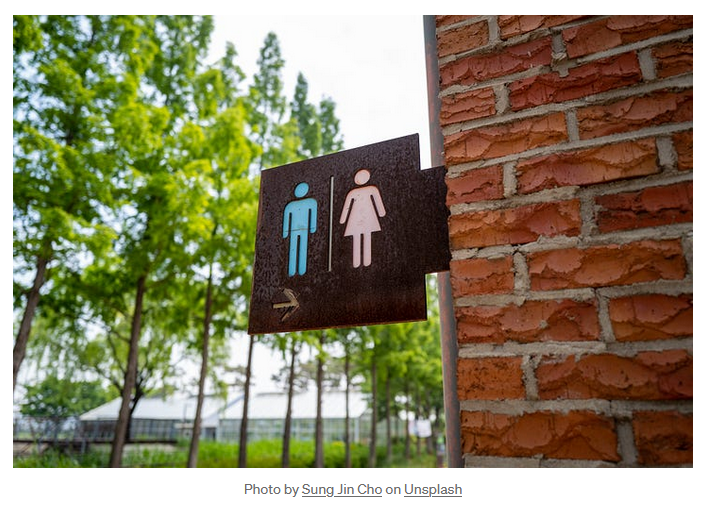



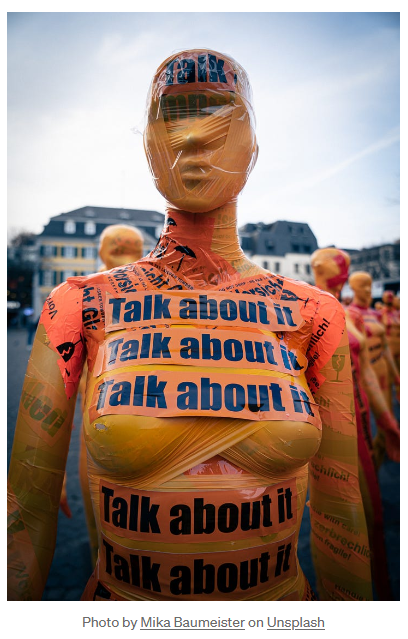
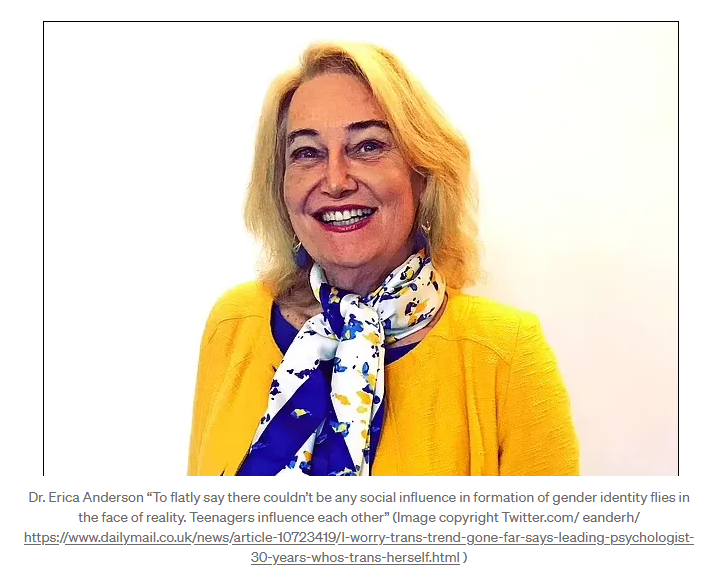
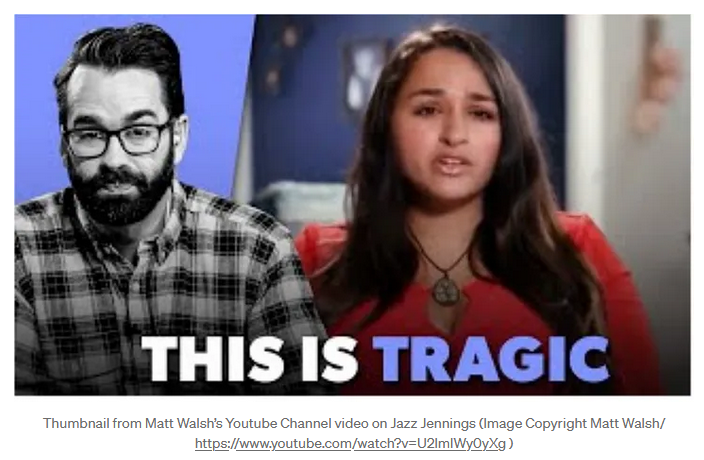

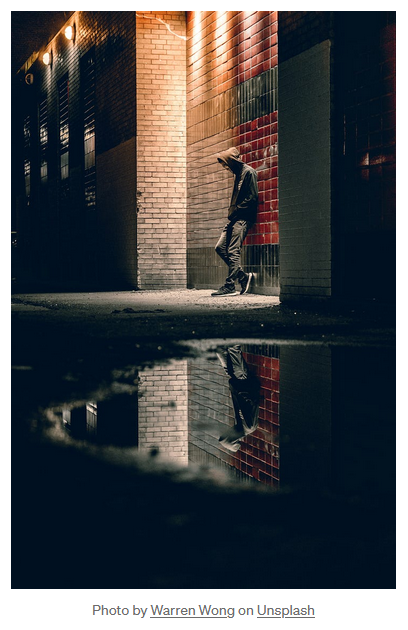
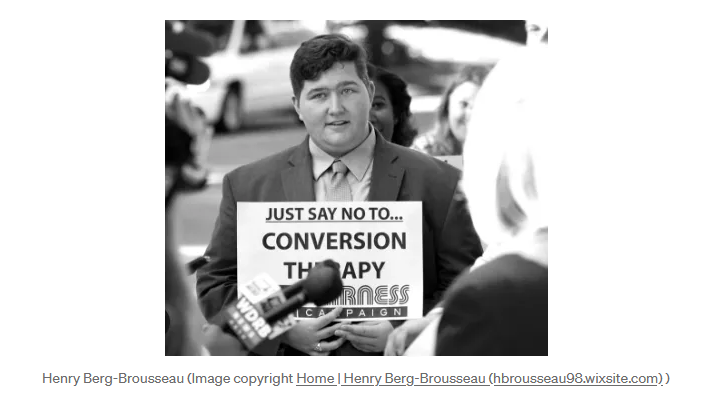

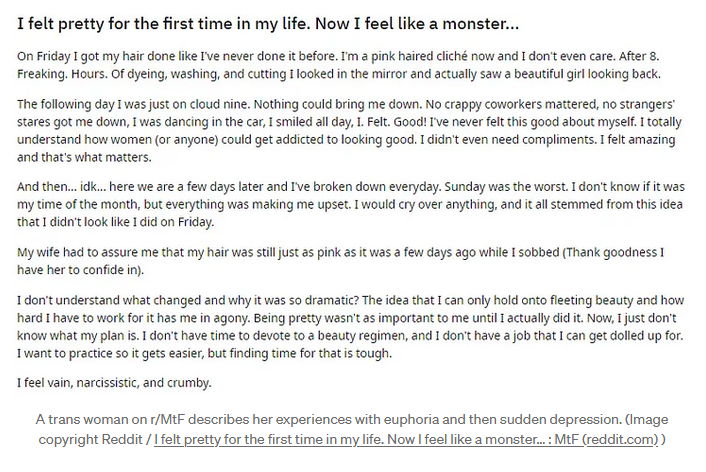
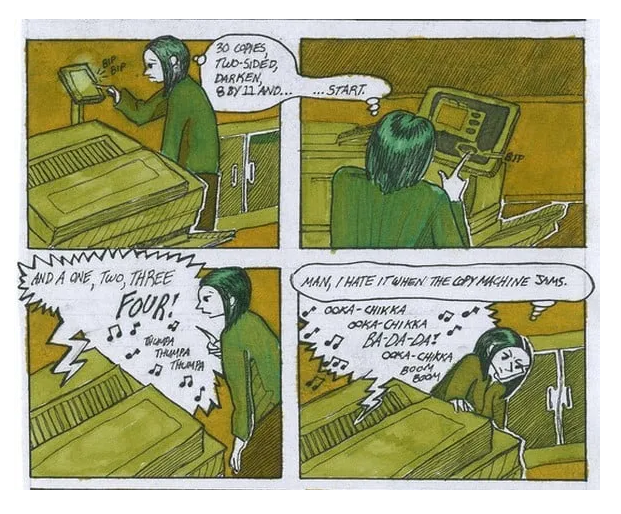
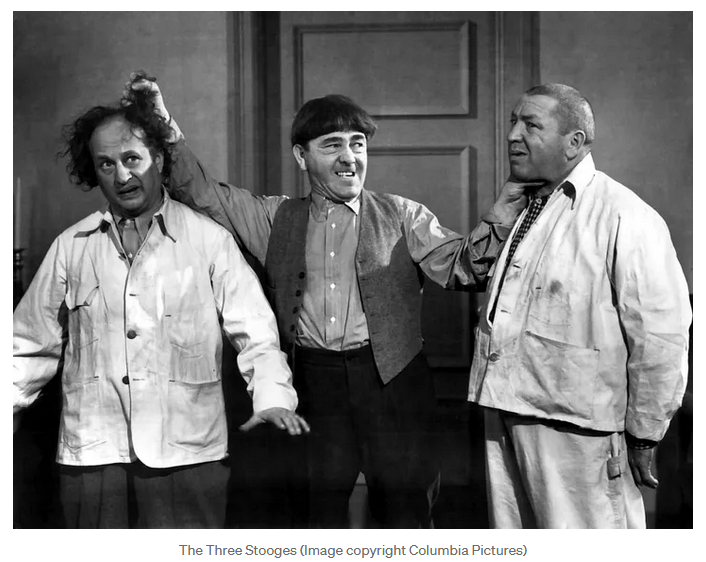




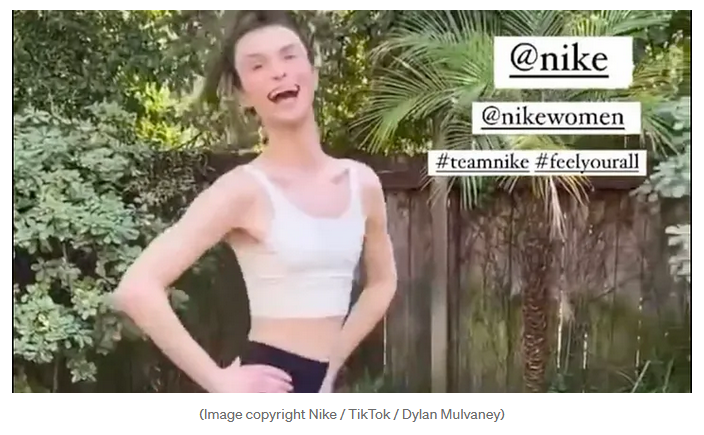


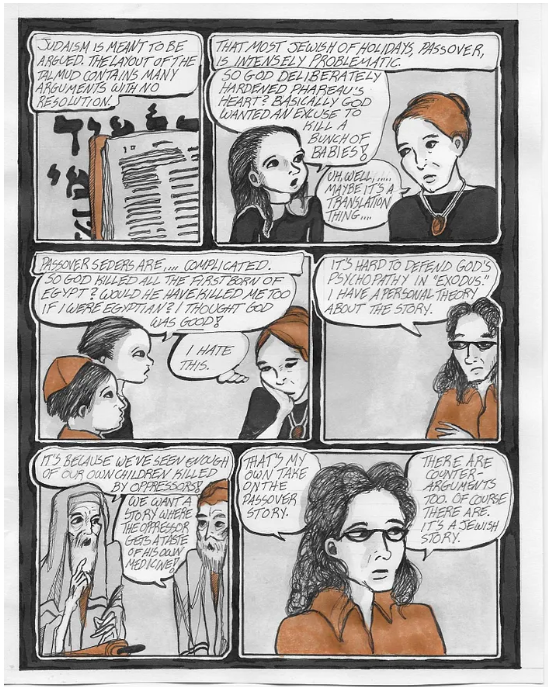

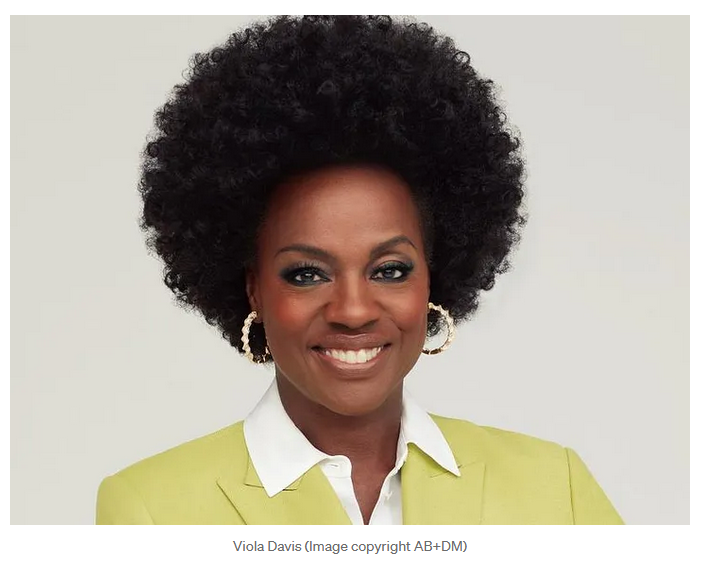




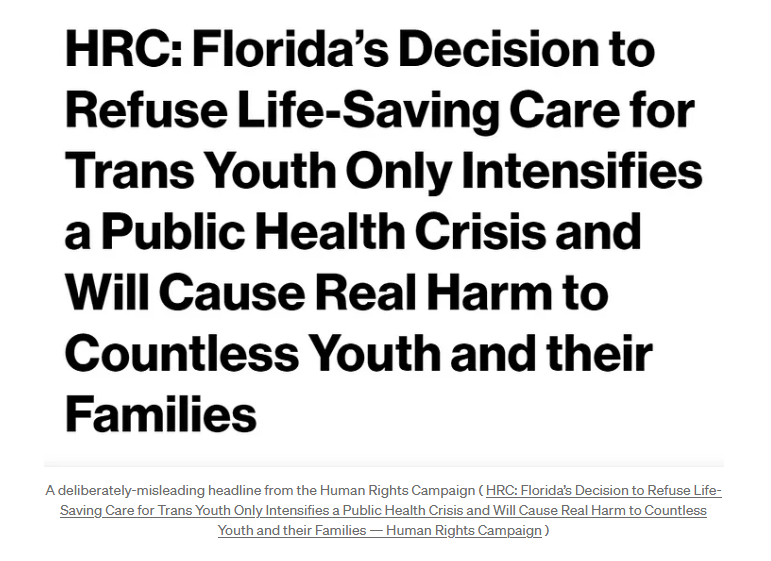

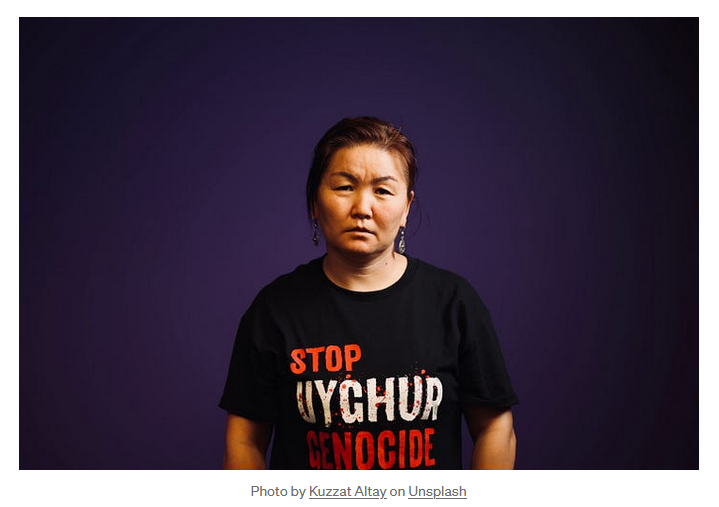
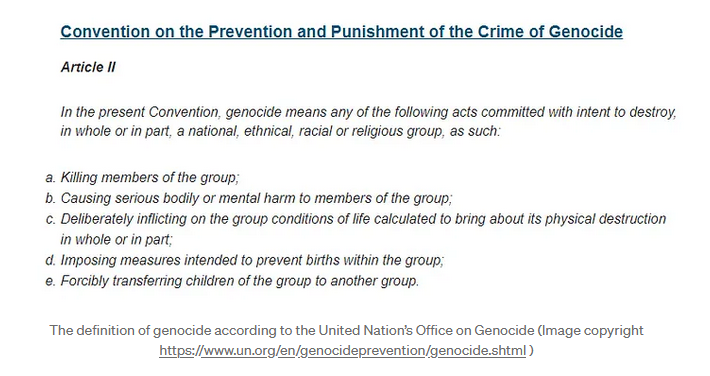

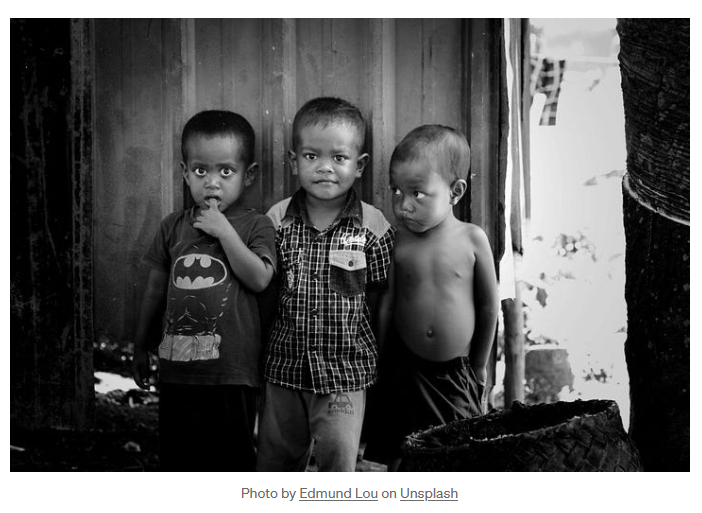
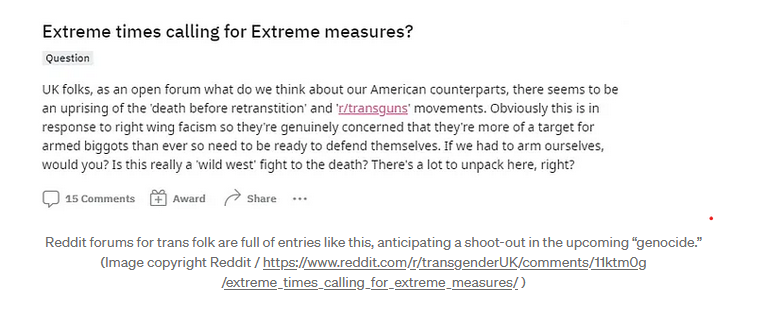

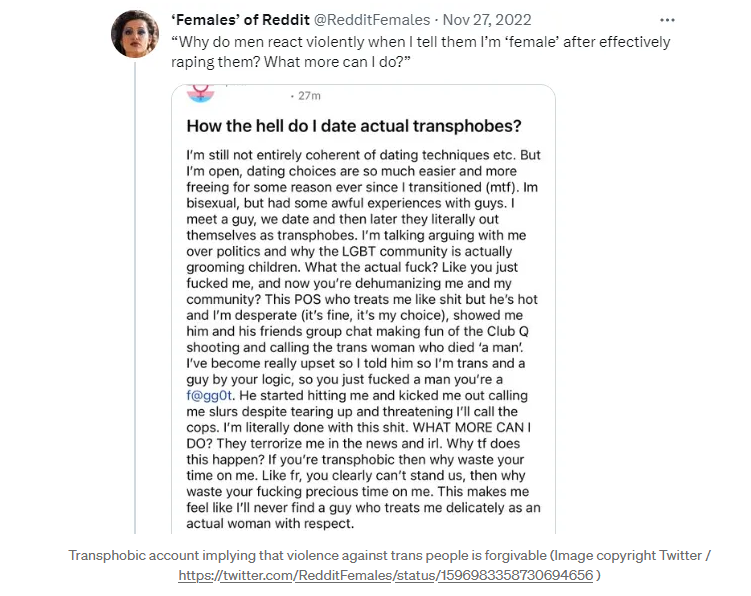
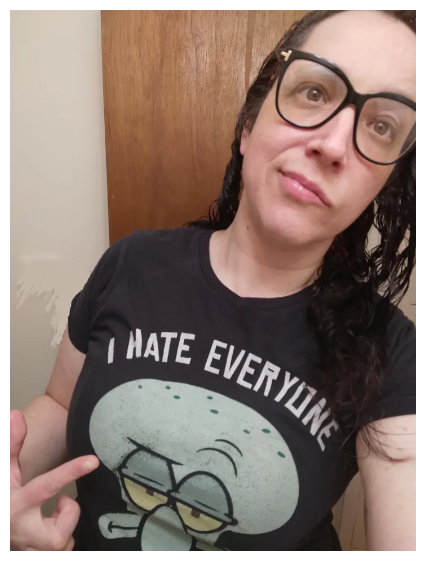
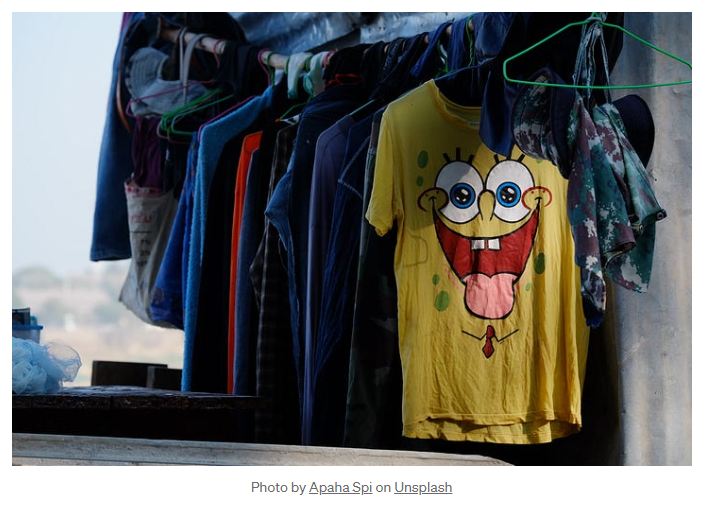

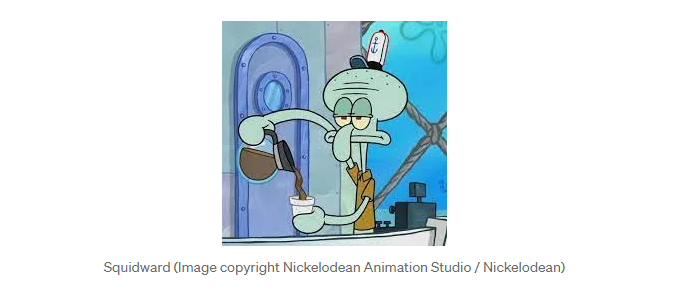
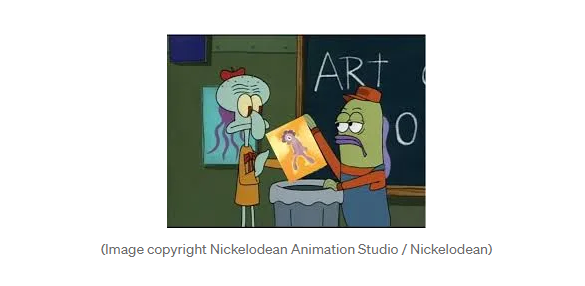
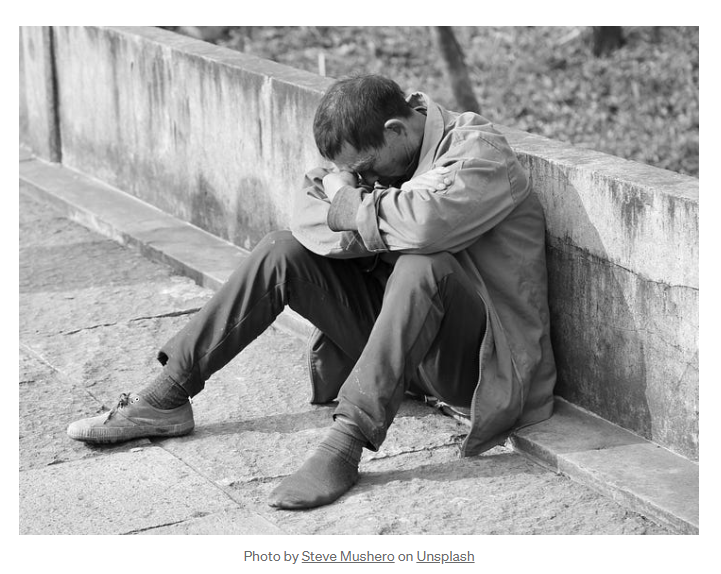

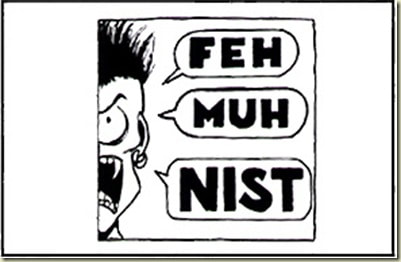
 RSS Feed
RSS Feed
